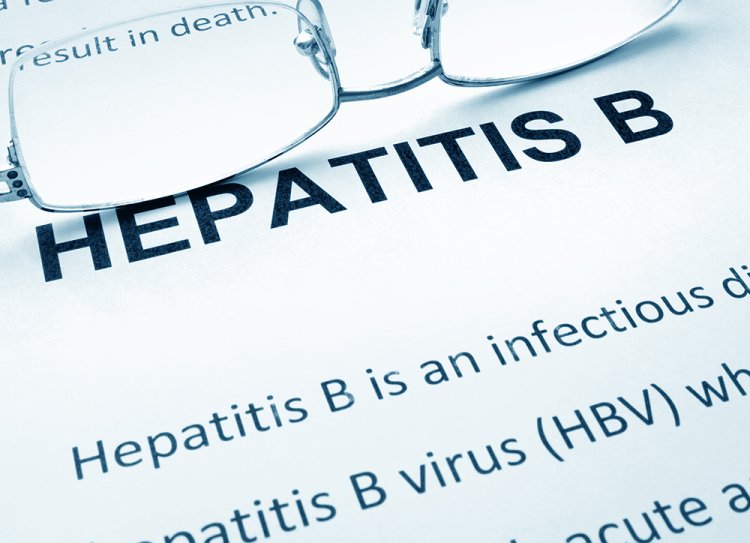Prevent and Know your Status on Hepatitis, Ugandans advised as world celebrates World Hepatitis Day
Hepatitis Aid Organisation (Trust, Vaccinate, Treat) in partnership with the Ministry of Health are accelerating the introduction of the Hepatitis B Birth dose in Uganda. – This youth community activity was held at MUBS main campus to commemorate World Hepatitis Day that is celebrated annually on 28th July.

By John Kusolo
Hepatitis Aid Organisation (Trust, Vaccinate, Treat) in partnership with the Ministry of Health are accelerating the introduction of the Hepatitis B Birth dose in Uganda. – This youth community activity was held at MUBS main campus to commemorate World Hepatitis Day that is celebrated annually on 28th July. Through this drive, different partners came together to creating awareness to remove discrimination and stigma. students, lecturers, staff, and people from the neighbouring community received services that included. Free COVID-19 test and Vaccine, blood donation, free HIV/ Aids testing, free testing and vaccination for Hepatitis B, and free medical consultation with the theme “Together we can protect our health.”
According to Dr. Lutakome Jamada managing director Masters Medical Center, Kanyaya says that according to a survey carried out, 4.1% infections of hepatitis are in northern Uganda. 90% of children get it when they are young while 15-65 have chronic Hepatitis. The Uganda National technical advisory group accepted back dose vaccination. In countries where birth dose is used, Hepatitis B is minimal. Anytime Ministry of Health will meet with Hepatitis Aid organisation to accelerate access of birth dose.

The myth and misinformation according to Dr. Jamada includes the following;
It can pass through contact with blood—one who has can transmit it to one who does not have.
An Injectable also transmits it. Blood transfusion services test your blood after donation.
Does not pass through sweat (on the 24th July 2022 Hepatitis Aid Organisation had a sports gala to remove discrimination against Hepatitis with Hepatitis patients playing against each other as part of the activities to commemorate(preceding) world hepatitis day).
Does not pass through saliva.
It is not a skin disease even if you share clothes.
Even if you share toilets, or food with a Hepatitis patient, you cannot contract it.
After 3 doses of vaccination, you cannot contract it. You have full immunity against hepatitis.
Modes of transmission
Mother to child transmission.
Sexual contact.
Prevention is only through getting 3 vaccination doses. After getting 1st dose, you get the 2nd dose after a month then the 3rd dose after 6 months. Lutamaguzi Emmanuel Executive Director of Hepatitis Aid Organisation is a person living positively with hepatitis B .He tested positive in 2016 while planning to travel abroad and did a comprehensive test and tested positive for Hepatitis B.
It is a requirement that you test HIV, Yellow fever and the rest while planning to travel. Doctors told him he was positive with Hepatitis, but did not tell him anything about it or even did not counsel him. “It was a tough time to me then, a doctor referred me to a private health facility which was expensive and challenging,” he said.
Consultation, patient management and doing the necessary tests were all expensive to him. He paid on some of them while others he failed like the viral load. He kept on asking for more information.
That time was a very difficult period after the loss of a Member of Parliament from the north to Hepatitis B. There was a lot of bad information and stigma. He thanked friends he worked with after opening up at canon Gideon foundation that counsels HIV patients. His friends encouraged him and it was a good environment to be in. He was then connected to a colleague at Uganda Cancer Institute who refereed him to viral load at a subsidized fee from Victoria Hospital. Doctorss told him he did not need any medication at the moment and guided him on how to live positively. It was a tough time to him because he was told to do a test after every 6 months. Through social media and different searches, he got in touch with Kenneth Kabagambe Executive Director National Organisation of people living with Hepatitis B referred him to Butabika Hospital to get free services from government at the Central Public Health laboratory CPHL) and he was able to do a viral load for free which became a turning point in his life.
The function was graced by Speaker Nakawa, Godfrey Luyombya who owns Luyombya Foundation And MP Nakawa East, Ronald Balimwezo who owns Balimwezo community foundation.
Hon Balimwezo promised to table a motion in parliament in order to accelerate the Hepatitis birth dose and also create awareness about Hepatitis in the house.
World Hepatitis Day is one of eight official disease-specific world health days designated by the World Health Organization. The annual observance focuses attention on the huge impact of viral hepatitis infection globally – with more than 350 million people worldwide living with either chronic hepatitis B or C. Hepatitis is an inflammation of the liver. It may be caused by drugs, alcohol use, or certain medical conditions. But in most cases, it's caused by a virus. This is known as viral hepatitis, and the most common forms are hepatitis A, B, and C
There are three common types of hepatitis caused by viruses: hepatitis A, hepatitis B, and hepatitis C. Vaccines have been developed that protect people from contracting hepatitis A and B. There is no vaccine for hepatitis C. Hepatitis A and hepatitis B can be spread from person to person, although in different ways.
There are six main types of viral hepatitis: A, B, C, D, E, and G.
Vaccines can prevent some viral hepatitis infections.
More than 2 billion people worldwide are estimated to have had hepatitis B virus (HBV) infection and 350 million chronic carriers of the virus are at high risk of cirrhosis of the liver and primary liver cancer. HBV accounts for an estimated 500,000–700,000 annual deaths worldwide. With a safe and effective vaccine available since 1982, much of this infection and death should be preventable.
The public health burden of HBV infection in Uganda is unknown, although the country has long been considered to be among the highly endemic countries of sub-Saharan Africa, with more than 8% of the population expected to harbour chronic infection. Results from a few Ugandan studies have supported this hypothesis: the prevalence of HBV surface antigen (HBsAg), a marker of chronic HBV infection, ranged from 6 to 15% among blood donors when HBV screening was introduced, and in selected populations in
. In medical students and health workers, the prevalence of HBsAg ranged from 8 to 11%. These studies found a prevalence of HBV core antibodies (HBcAb) between 60 and 66%, which, in the absence of HBV vaccination programs, suggests that two-thirds of the Ugandan population is infected with HBV during their lifetime.

































































































